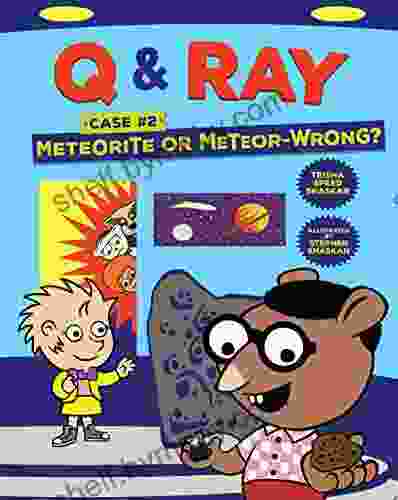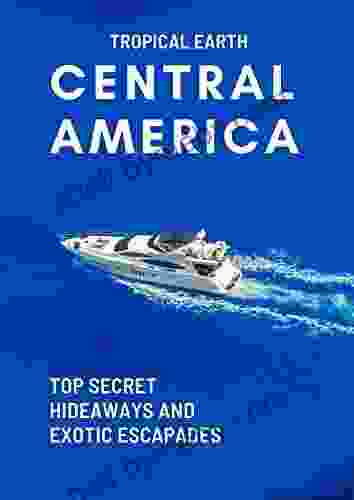Meteorite or Meteor: Wrong Case, Wrong Place, Right Time

Meteorites and meteors are often confused with each other, but they are actually two very different things. A meteorite is a solid piece of debris from an asteroid or comet that has fallen to Earth's surface. A meteor, on the other hand, is a streak of light in the sky caused by a small piece of debris from space entering Earth's atmosphere.
The confusion between meteorites and meteors is understandable, given that they both come from space and can appear similar. However, there are a few key differences between the two. First, meteorites are much larger than meteors. Meteorites can range in size from a few grams to several tons, while meteors are typically only a few millimeters in diameter. Second, meteorites are made of solid material, while meteors are made of gas and dust. Third, meteorites are much less common than meteors. Only a few hundred meteorites fall to Earth each year, while millions of meteors enter Earth's atmosphere every day.
5 out of 5
| Language | : | English |
| File size | : | 18216 KB |
| Screen Reader | : | Supported |
| Print length | : | 48 pages |
The Difference Between Meteorites and Meteors
The main difference between meteorites and meteors is their size. Meteorites are much larger than meteors, ranging in size from a few grams to several tons. Meteors, on the other hand, are typically only a few millimeters in diameter. This difference in size is due to the fact that meteorites are solid objects, while meteors are made of gas and dust.
Another difference between meteorites and meteors is their composition. Meteorites are made up of a variety of materials, including rock, metal, and ice. Meteors, on the other hand, are made up of gas and dust. This difference in composition is due to the fact that meteorites are formed from the solid debris of asteroids and comets, while meteors are formed from the gas and dust that is released when these objects enter Earth's atmosphere.
Finally, meteorites are much less common than meteors. Only a few hundred meteorites fall to Earth each year, while millions of meteors enter Earth's atmosphere every day. This difference in frequency is due to the fact that meteorites are much larger than meteors, and therefore they are less likely to be able to penetrate Earth's atmosphere.
The Impact of Meteorites and Meteors on Earth
Meteorites and meteors can both have a significant impact on Earth. Meteorites can cause damage to property and infrastructure, and they can even kill people. In 2013, a meteorite exploded over Chelyabinsk, Russia, injuring over 1,500 people. Meteors, on the other hand, typically do not cause any damage to Earth. However, they can be a nuisance, as they can create bright streaks of light in the sky that can interfere with astronomical observations.
In addition to their potential to cause damage, meteorites and meteors can also provide valuable scientific information. Meteorites can provide information about the composition of asteroids and comets, and they can also help scientists to understand the history of the solar system. Meteors, on the other hand, can provide information about the composition of the upper atmosphere and the rate at which cosmic dust enters Earth's atmosphere.
Scientific Discoveries Made Through the Study of Meteorites and Meteors
The study of meteorites and meteors has led to a number of important scientific discoveries. These discoveries have helped scientists to understand the composition of the solar system, the history of the Earth, and the nature of the universe.
One of the most important discoveries made through the study of meteorites is that the solar system formed about 4.6 billion years ago. This discovery was made by analyzing the radioactive elements in meteorites. Meteorites contain small amounts of radioactive elements, such as uranium and thorium. These elements decay over time, and the rate at which they decay is known. By measuring the amount of radioactive elements in a meteorite, scientists can determine how long ago it formed.
Another important discovery made through the study of meteorites is that the Earth was once bombarded by asteroids and comets. This bombardment is thought to have played a major role in the evolution of life on Earth. Asteroids and comets can deliver water, organic molecules, and other essential ingredients for life to Earth. They can also cause mass extinctions, which can create new opportunities for life to evolve.
The study of meteors has also led to a number of important discoveries. One of the most important discoveries is that the Earth's atmosphere is constantly being bombarded by cosmic dust. Cosmic dust is made up of small particles of rock and metal that are released from asteroids and comets. Cosmic dust can cause meteors, and it can also contribute to the formation of clouds and rain.
Meteorites and meteors are two very different things, but they both play an important role in our understanding of the solar system and the history of the Earth. Meteorites can provide information about the composition of asteroids and comets, and they can help scientists to understand the history of the solar system. Meteors, on the other hand, can provide information about the composition of the upper atmosphere and the rate at which cosmic dust enters Earth's atmosphere. The study of meteorites and meteors has led to a number of important scientific discoveries, and it is likely that these discoveries will continue to provide new insights into the nature of the universe for many years to come.
5 out of 5
| Language | : | English |
| File size | : | 18216 KB |
| Screen Reader | : | Supported |
| Print length | : | 48 pages |
Do you want to contribute by writing guest posts on this blog?
Please contact us and send us a resume of previous articles that you have written.
 Book
Book Novel
Novel Page
Page Chapter
Chapter Text
Text Story
Story Genre
Genre Reader
Reader Library
Library Paperback
Paperback E-book
E-book Magazine
Magazine Newspaper
Newspaper Paragraph
Paragraph Sentence
Sentence Bookmark
Bookmark Shelf
Shelf Glossary
Glossary Bibliography
Bibliography Foreword
Foreword Preface
Preface Synopsis
Synopsis Annotation
Annotation Footnote
Footnote Manuscript
Manuscript Scroll
Scroll Codex
Codex Tome
Tome Bestseller
Bestseller Classics
Classics Library card
Library card Narrative
Narrative Biography
Biography Autobiography
Autobiography Memoir
Memoir Reference
Reference Encyclopedia
Encyclopedia Hope Hatton
Hope Hatton Paul Gamble
Paul Gamble Hugh Brewster
Hugh Brewster Helen Strahinich
Helen Strahinich Ryosuke Fuji
Ryosuke Fuji Hilda Jarman Muir
Hilda Jarman Muir Henry Worsley
Henry Worsley Holly Korbey
Holly Korbey Nancy Faust Sizer
Nancy Faust Sizer Helen Foster James
Helen Foster James Nicole R Fleetwood
Nicole R Fleetwood Jasmine Greene
Jasmine Greene Ken Bain
Ken Bain Helen E Johnson
Helen E Johnson Kelly Wiese
Kelly Wiese M C Laubscher
M C Laubscher Roderick Benns
Roderick Benns Horace G Hutchinson
Horace G Hutchinson Hayden Herrera
Hayden Herrera Shauna Lynn Panczyszyn
Shauna Lynn Panczyszyn
Light bulbAdvertise smarter! Our strategic ad space ensures maximum exposure. Reserve your spot today!

 Joseph FosterEmbark on a Journey of Joy, Resilience, and Motherhood with Hoda Kotb's You...
Joseph FosterEmbark on a Journey of Joy, Resilience, and Motherhood with Hoda Kotb's You...
 Federico García LorcaNavigating the Unthinkable: A Comprehensive Guide to Pregnancy Loss Guidance...
Federico García LorcaNavigating the Unthinkable: A Comprehensive Guide to Pregnancy Loss Guidance... Ivan TurnerFollow ·15.4k
Ivan TurnerFollow ·15.4k Zachary CoxFollow ·6.2k
Zachary CoxFollow ·6.2k Andres CarterFollow ·12.7k
Andres CarterFollow ·12.7k Shaun NelsonFollow ·6.1k
Shaun NelsonFollow ·6.1k Caleb LongFollow ·4.5k
Caleb LongFollow ·4.5k Quincy WardFollow ·17.6k
Quincy WardFollow ·17.6k Walter SimmonsFollow ·18.5k
Walter SimmonsFollow ·18.5k Alfred RossFollow ·17.1k
Alfred RossFollow ·17.1k

 Bo Cox
Bo CoxUncover the Enchanting Pearl of the Arabian Gulf: Insight...
Escape to the opulent...

 Michael Crichton
Michael CrichtonInsight Guides Pocket Baku Travel Guide Ebook: Your...
An Enchanting Journey...

 Eugene Scott
Eugene ScottLearn to Paint Scenic Scenes: Unveil the Secrets of...
Step into the...

 Benji Powell
Benji PowellEmbark on a Culinary Adventure with "The Ultimate Sichuan...
Sichuan cuisine,...

 Finn Cox
Finn CoxDiscover the Enchanting World of Art Nouveau: A...
Immerse yourself in the captivating beauty...

 Corey Green
Corey GreenUncover the Vibrant World of Guatemalan Chicken Buses: An...
Step into a world of vibrant colors,...
5 out of 5
| Language | : | English |
| File size | : | 18216 KB |
| Screen Reader | : | Supported |
| Print length | : | 48 pages |








